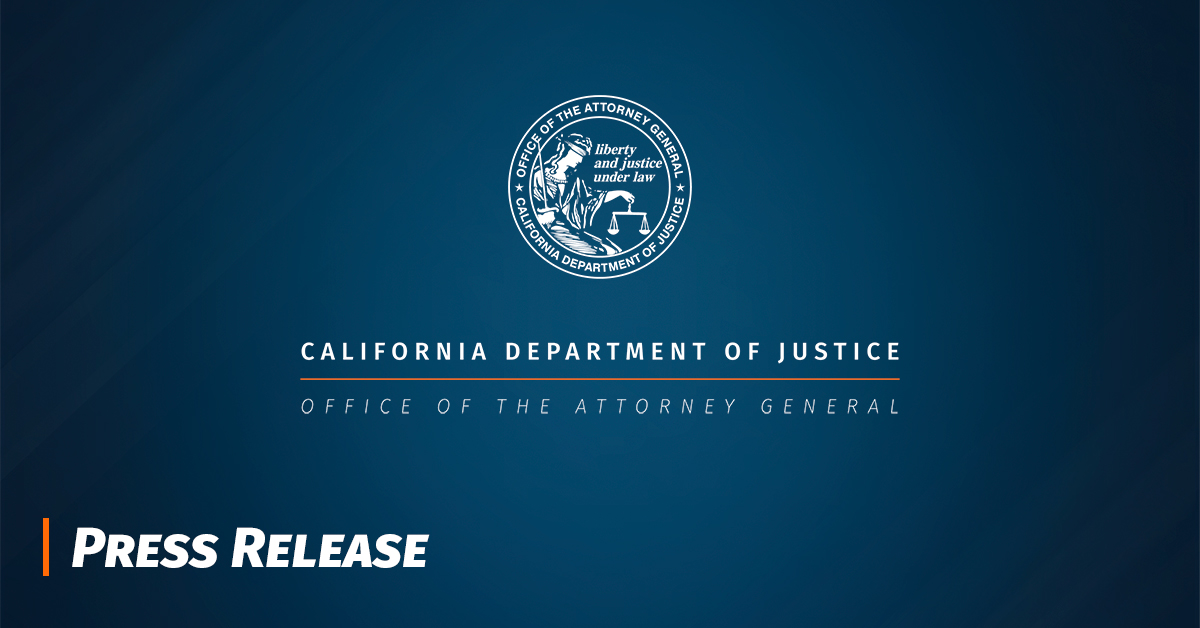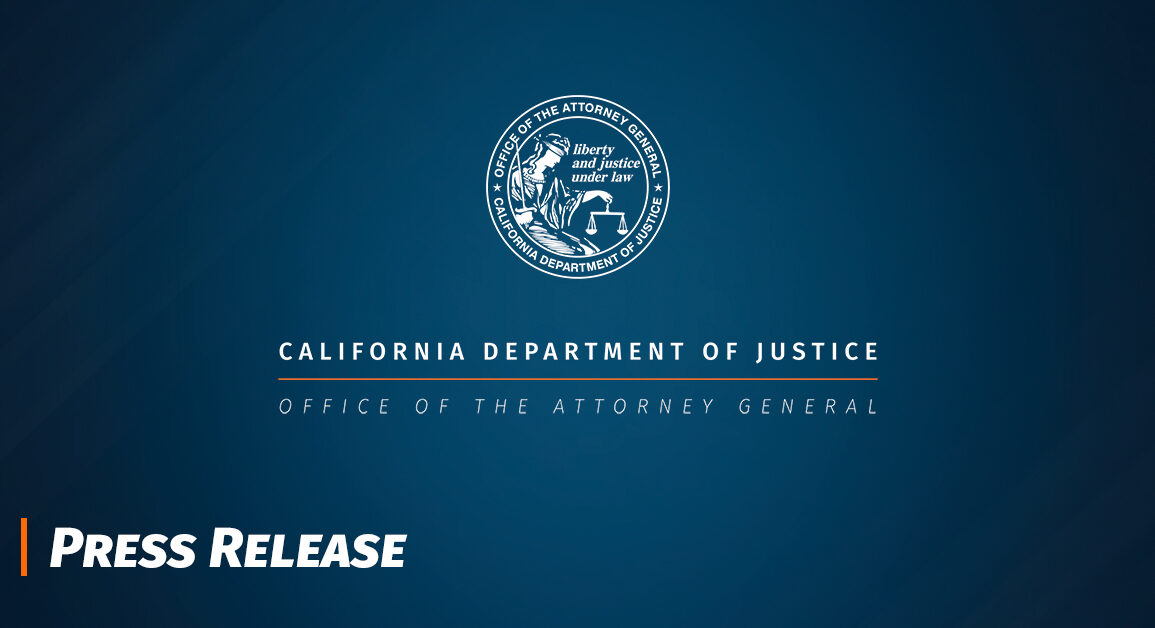
Report details results of an investigation and successful follow-up efforts by DOJ to ensure inmates’ reproductive rights are protected
OAKLAND — California Attorney General Rob Bonta today announced the results of an investigation by the California Department of Justice (DOJ) into reproductive healthcare access in county jails. Specifically, DOJ looked into whether the sheriffs and administrators overseeing each county jail in California had put in place policies required by law to protect the reproductive rights of incarcerated individuals. As a result of the investigation and DOJ’s subsequent work with the counties, the rate of compliant policy manuals in county jails has improved dramatically — from below 2% to over 96%. These results have been detailed in DOJ’s first-ever Reproductive Healthcare in Jails Report, a significant step forward in Attorney General Bonta’s efforts to protect the reproductive rights of all Californians and reform the criminal justice system.
“Healthcare is a human right that each and every one of us deserves access to,” said Attorney General Bonta. “Today, my office takes an important step forward in ensuring that Californians in county jails have access to the reproductive healthcare they need and are entitled to. I am grateful to our partners in sheriff’s offices across California, who worked with us to ensure jail staff are accurately informed of their duties and incarcerated people are aware of their reproductive rights. The right to be treated with dignity does not end when an individual is incarcerated. My office will continue to stand up for the reproductive rights of every person, in California and beyond.”
California and federal laws mandate that county jails provide incarcerated people access to a range of healthcare services, including reproductive healthcare. These protections were strengthened in 2020 when the Reproductive Dignity for Incarcerated People Act (AB 732), authored by then-Assemblymember Rob Bonta, was passed by the California Legislature.
Despite these protections in the law, incarcerated people do not always receive these mandated reproductive healthcare services. DOJ’s investigation is a first step towards addressing these issues and making county jail more equitable for female inmates.
As part of the investigation, DOJ’s Healthcare Resources and Access (HRA) Section reviewed county jail manuals to ensure that they accurately reflected the requirements of state and federal law as they pertain to reproductive healthcare. Specifically, HRA reviewed policies governing six reproductive health issues — abortion, pregnancy testing, birth control, birthing, menstrual products, and breastfeeding — and concluded that jail policies in nearly all of the 53 counties reviewed did not fully comply with state and federal laws. Only one of the counties had a policy manual that was fully compliant with reproductive healthcare laws. Subsequently, HRA worked with the non-compliant counties and as a result, 51 of the 53 counties now have policies that protect inmates’ access to reproductive healthcare in compliance with the law. DOJ will continue to seek compliance from the remaining counties.
HRA works proactively to increase and protect the affordability, accessibility, and quality of healthcare in California. HRA’s attorneys monitor and contribute to various areas of the Attorney General’s healthcare work, including nonprofit healthcare transactions; consumer rights; anticompetitive consolidation in the healthcare market; anticompetitive drug pricing; privacy issues; civil rights, such as reproductive rights and LGBTQ healthcare-related rights; and public health work on tobacco, e-cigarettes, and other products.
A copy of the Reproductive Healthcare in Jails Report is available here.
This post was originally published on this site be sure to check out more of their content.







